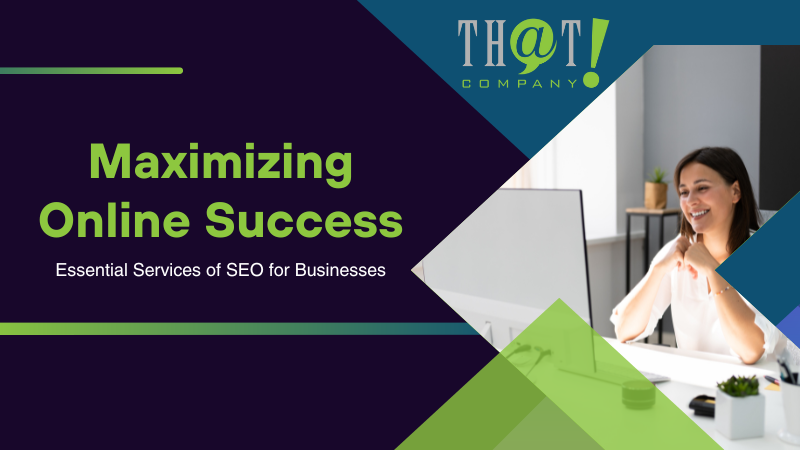
When you’re diving into ‘services of seo,’ you’re seeking effective tools to climb search engine rankings. This practical exploration offers a straightforward rundown of essential SEO services, stripping away the jargon to focus on what will genuinely boost your site’s visibility. From smart keyword targeting to seamless technical performance, you’ll learn what these services entail and how they converge to enhance your online stature without gimmicks or unnecessary complexity.
Key Takeaways
- SEO is a multifaceted approach encompassing on-page optimization, keyword research, and technical improvements aimed at increasing a website’s visibility and ranking in SERPs, which are tailored according to each business’s unique needs.
- An effective SEO strategy includes off-page elements like backlinks and social media marketing, local SEO for targeting community-based customers, and regular SEO audits for assessing and improving site performance.
- SEO requires investment and strategic selection of service providers, with costs varying due to competition level, provider expertise, and scope of services, and it’s critical for e-commerce success as it boosts organic traffic, customer engagement, and sales conversions.
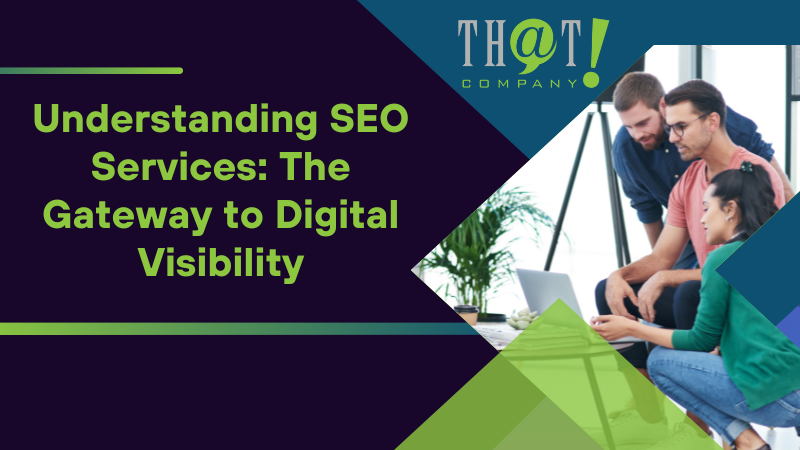
Understanding SEO Services: The Gateway to Digital Visibility
SEO is the process of making a website visible to search engines, a critical step towards improving ranking on search engine results pages (SERPs). But SEO isn’t just about visibility; it’s about becoming the right kind of visible. Comprehensive SEO services align with search engine algorithms while effectively addressing user queries, paving the path for digital success.
Implementing SEO strategies can significantly increase a business’s online visibility, leading to a surge in organic traffic and contributing to the business’s profitability. However, SEO isn’t a one-size-fits-all solution. Each business is unique, and so should be its SEO strategy. Only with the support of experienced SEO professionals can businesses navigate the competitive landscape, crafting custom-tailored SEO strategies that cater to their unique identities.

The Pillars of SEO Strategy: Building Your Online Foundation
Like a sturdy building, an effective SEO strategy rests on solid foundational pillars: on-page optimization, effective keyword research, and technical SEO enhancements. Moreover, white label SEO marketing helps businesses expand their service offerings, improve efficiency, and increase profitability.
We’ll now break down these components.
Keyword Mastery: Unlocking Search Queries
Consider keywords as the guiding compass for your search engine optimization journey. They help target the right audience by using high-intent keywords that resonate with them. What’s the method to pinpoint these targeted keywords? The answer lies in keyword performance analysis. Google Analytics, under Acquisition > Campaigns > Organic Keywords, allows businesses to identify search terms driving traffic.
Monitoring keyword rank progress plays a pivotal role in assessing a website’s improvement in search performance. By aligning your content with the right keywords, you ensure that your website speaks in a language that both your audience and search engines understand.
On-Page Excellence: Crafting Content That Connects
Having identified the right keywords, the subsequent step involves on-page optimization. This process includes modifying elements within the website to elevate its ranking in search engine results. Key on-page elements such as meta titles and descriptions play a significant role in making content discoverable and compelling to both search engines and online audiences.
SEO isn’t solely about luring search engines; it equally involves directing them. This is where internal linking structures come into play. By optimizing these structures, you guide search engine bots to crawl and understand your domain’s content efficiently. A well-structured website is like a well-organized library, easy to explore and delightful to visit, for both users and search engines.
Technical SEO: Under-the-Hood Enhancements
While keywords and on-page optimization draw in and steer visitors, the hidden enhancements of technical SEO provide them with a seamless journey. Elements like site speed and mobile optimization are crucial for enhancing user experience and search engine performance.
Optimizing file sizes through image optimization and code minimization can significantly reduce load time, improving site speed and ensuring a positive experience for mobile users, especially for e-commerce sites. Meanwhile, a flat website hierarchy improves bot crawling speed, which is beneficial for SEO.
Proper URL structure optimization and canonicalization prevent search engine confusion by avoiding duplicate content and ensuring clear, search engine friendly URLs that facilitate indexing. By utilizing tools like Google Search Console, these technical tweaks might not be visible to the naked eye, but they play a pivotal role in securing a top spot on the SERPs.

The Art of Off-Site SEO: Expanding Your Digital Footprint
Much like a tree’s health depends on both its branches and roots, a website’s SEO success is influenced by more than just on-page elements. Off-page SEO optimizes external factors that impact website visibility and credibility, contributing significantly to a website’s Expertise, Authoritativeness, and Trustworthiness (E-A-T) as evaluated by search engines.
One cornerstone of off-page SEO is backlinks. Think of them as endorsements from high-authority and relevant websites. These endorsements elevate your website’s credibility and are a major ranking factor in search engines. A comprehensive backlink profile assessment or link building audit critiques the health of your link profile, focusing on the quality and quantity of referring domains.
Off-page SEO encompasses the following activities:
- Social media marketing
- Content distribution
- Influencer engagement
- Publishing press releases
- Guest posting on reputable websites
These activities amplify your brand’s content and expand its digital reach. Additionally, they can gain valuable backlinks, enhance brand visibility, and showcase expertise to a wider audience.
Lastly, online reputation management, through customer reviews and brand signals, influences trust and perception, further cementing a brand’s search engine authority. The good thing is, white label online reputation services are available today.
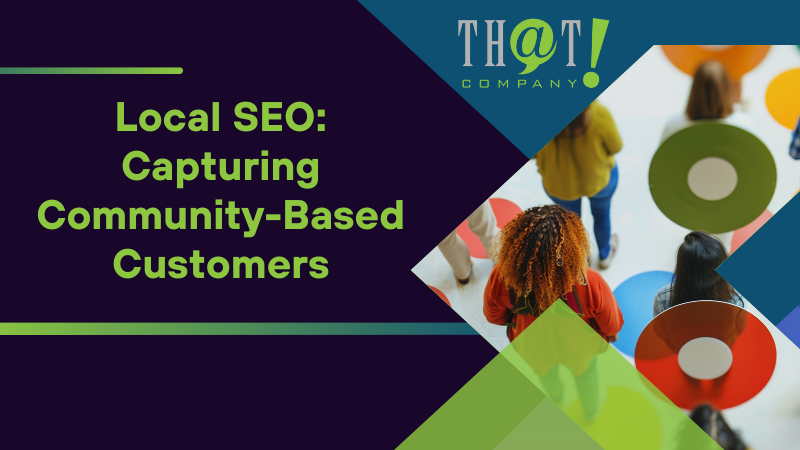
Local SEO: Capturing Community-Based Customers
Within the expansive digital terrain, local SEO maintains focus on the immediate community. Google My Business is a pivotal component of local SEO, impacting visibility in Local Pack results. Optimizing a Google My Business profile involves providing comprehensive business details, uploading high-resolution media, and leveraging tools like Google Posts and Q&A to engage with the customer base.
Verification of Google My Business accounts is a critical step, usually done via postcard or phone verification. Beyond this, building local citations—creating profiles with consistent business information across various platforms—helps in local search rankings.
The goal of local SEO is to enhance rankings for searches with local intent and rank in the Local Pack and Maps, vital for businesses functioning regionally. Local SEO services encompass on-page optimization, focusing on local keyword research and crafting optimized titles and meta descriptions. These techniques help businesses improve their visibility within specific geographic locations.

Beyond Traditional Search Engines: Embracing Alternative Platforms
While Google might be the giant in the search engine landscape, it isn’t the only game in town. Optimizing for Bing is essential because it is the default search engine on Microsoft Edge and Windows 10 devices, implying a significant user base that relies on Bing out of convenience or preference. Bing Webmaster Tools offer valuable insights and analytics, assisting businesses in understanding and enhancing their site’s performance within the Bing search ecosystem.
But the shift in search behavior isn’t just about different search engines—it’s also about different ways of searching. Voice search has grown beyond just use on smartphones; smart speakers and virtual assistants are increasingly being adopted across generations. Since Bing is responsible for powering key voice search services through Alexa and Cortana, optimizing for voice search becomes crucial to tap into this large segment of the market.

SEO Audits: Diagnosing Your Digital Health
In the same manner that regular health check-ups ensure physical well-being, periodic SEO audits are vital for preserving your website’s health. SEO audits provide insight into the current performance of the site’s SEO and the various issues that need attention.
A comprehensive SEO audit examines numerous factors such as:
- keyword usage
- crawling and indexing errors
- link structure
- site architecture
- page speed
- mobile responsiveness
- content quality
to determine areas requiring improvement. These audits not only reveal weaknesses but are essential for measuring SEO effectiveness over time, helping businesses prioritize their marketing efforts strategically.
Through systematic evaluation, SEO audits diagnose problems that impact site usability and technical performance, providing a clear direction for necessary corrective actions. Like a GPS for your website, SEO audits guide your journey to the top of the SERPs.

Leveraging Advanced SEO Tools and Analytics
Within the SEO realm, data reigns supreme. Advanced SEO tools like Google Analytics allow businesses to track organic search traffic, assess how visitors interact through the behavioral flow section, and monitor the performance of specific landing pages. This data not only helps businesses understand the impact of their SEO strategies on organic traffic but also leverages first-party data for other marketing initiatives.
A comprehensive search engine optimization services include:
- Frequent, detailed progress reports
- Analytics that give insight into high-ranking keywords
- Changes on the website
- Transparent and actionable insights into the effectiveness of SEO campaigns
These reports and analytics are essential for monitoring and optimizing your SEO strategy.
By syncing their marketing and sales data with the help of an SEO provider that includes ROI tracking, businesses can maximize their SEO ROI. This is vital for smart, data-driven marketing and strategic decision-making.
With advanced SEO tools and analytics, businesses can move from guessing games to data-driven decision-making.

The Role of Content Marketing in SEO Success
Content is the lifeblood of SEO. Effective content marketing supports SEO by generating backlinks, attracting media attention, and delivering a good audience experience. Quality content that aligns with Google’s Experience, Expertise, Authoritativeness, and Trustworthiness (E-E-A-T) is more likely to rank well in search results.
Companies that blog produce 67% more leads per month than those that don’t, indicating the power of regular content production in improving SEO authority. Guest blogging is a strategy where articles are written for reputable, high domain authority publishers to receive an editorial backlink, thus enhancing SEO.
Content marketing’s influence on SEO extends through various distribution channels like email newsletters, organic social posts, and social ads, which build brand mentions and visibility. With quality content marketing, businesses can win the SEO game without compromising on user experience.

The Cost of Climbing: Breaking Down SEO Services Cost
Although SEO can dramatically enhance a business’s online visibility and profitability, it incurs a cost. The cost of SEO services can vary greatly, influenced by factors such as:
- the volume and competitiveness of online competition
- the experience and track record of the provider
- the number of pages to optimize
- the current effectiveness of site optimization
- whether a provider offers specialized services.
SEO services are commonly priced either on a project basis or on a monthly retainer, with hourly rates ranging from $50 to $100 and monthly plans from $2,500 to $7,500. Small businesses might expect to spend between $500 to $5,000 per month on SEO services, with variations depending on the provider and the scope of the services rendered.
Interestingly, there is a correlation between the amount spent on SEO services and client satisfaction, suggesting that higher investments in quality SEO could lead to better outcomes.
Before signing an SEO service contract, businesses should ensure the contract includes clear deliverables and that the fees are reasonable for the services being offered.

Selecting an SEO Provider: The Agency That Other SEO Agencies Use
In the context of SEO, selecting the appropriate partner can be game-changing. Hiring an SEO company provides access to specialists with a wide range of skills for optimal results. That! Company, a reputable white label digital marketing services, offers white label SEO services, allowing agencies to outsource expert SEO work.
Choosing a provider like That! Company, which is also used by other agencies, highlights their trusted expertise and reputation in the industry. When other agencies trust a provider enough to outsource their work to them, it signifies the provider’s high level of expertise and reliability.
The decision to select an SEO service provider should not be taken lightly. With the right provider, businesses can unlock the full potential of SEO, making their mark in the digital landscape.
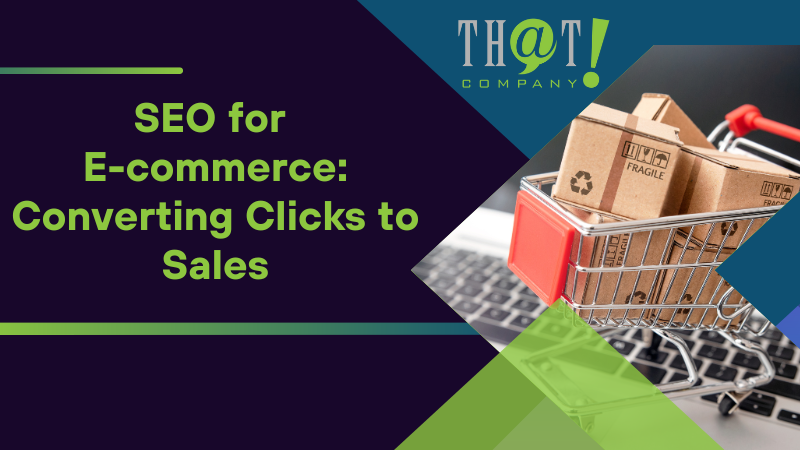
SEO for E-commerce: Converting Clicks to Sales
E-commerce websites resemble thriving digital marketplaces, with SEO capable of directing customers directly to your storefront. For high-value e-commerce sites, a simple and scalable site structure enables easy navigation by visitors and search engine bots.
E-commerce sites must target a mix of informational and commercial keywords, with the latter showing buying intent like ‘raincoats for dogs’. Furthermore, it’s recommended to optimize both product category and individual product pages with unique and comprehensive descriptions.
Creating internal links between related products and content can keep visitors engaged and increase the likelihood of a sale. E-commerce websites that effectively optimize for SEO can achieve:
- More than a 273% increase in organic traffic
- Higher search engine rankings
- Increased visibility and brand awareness
- More targeted website traffic
- Improved user experience
- Higher conversion rates
In the world of e-commerce, SEO doesn’t just drive clicks; it drives sales.
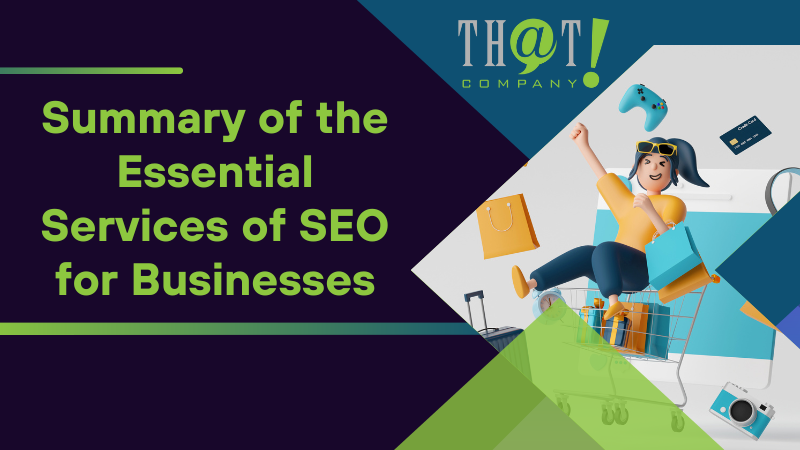
Summary
In a world where online visibility is critical, SEO lends businesses the spotlight they need to shine. From understanding the intricacies of SEO services to implementing on-page and off-page SEO strategies, businesses can navigate the digital landscape with confidence. Whether it’s local SEO capturing community-based customers or alternative platforms extending the reach beyond traditional search engines, SEO proves to be the secret weapon of digital success.
Investing in advanced SEO tools, conducting regular SEO audits, and partnering with trusted SEO providers like That! Company can set businesses on the path to SEO success. With the right SEO strategies, businesses can not only climb the search rankings but also convert clicks into sales, proving that SEO is a cost worth climbing.

Frequently Asked Questions
What are the key elements of an effective SEO strategy?
The key elements of an effective SEO strategy include on-page optimization, keyword research, technical SEO enhancements, and off-page activities such as backlink building and social media marketing. It is important to focus on both on-page and off-page SEO activities to achieve success.
How do I optimize my site for local SEO?
To optimize your site for local SEO, focus on optimizing your Google My Business profile, providing thorough business details, and building local citations with consistent business information across different platforms. This will enhance your local search presence and improve your site’s visibility to potential customers.
Why is it important to optimize for alternative platforms like Bing and voice search?
It is important to optimize for alternative platforms like Bing and voice search because Bing has a significant user base through Microsoft devices, and voice search is becoming increasingly popular across different age groups, showing a change in user search habits.
How often should I conduct an SEO audit?
You should conduct an SEO audit regularly to maintain your website’s health and address any underlying SEO issues that may be affecting its performance.
How does content marketing support SEO?
Content marketing supports SEO by generating backlinks, attracting media attention, and delivering a good audience experience, ultimately improving SEO authority and gaining editorial backlinks.






























